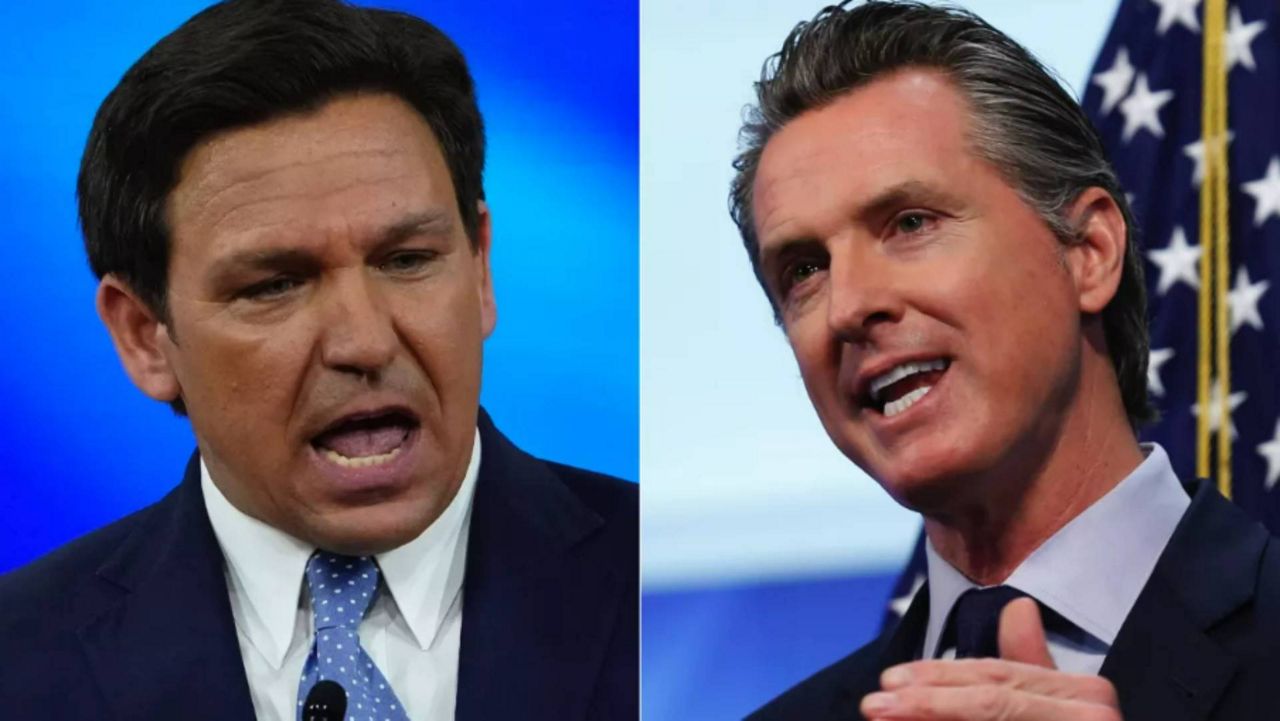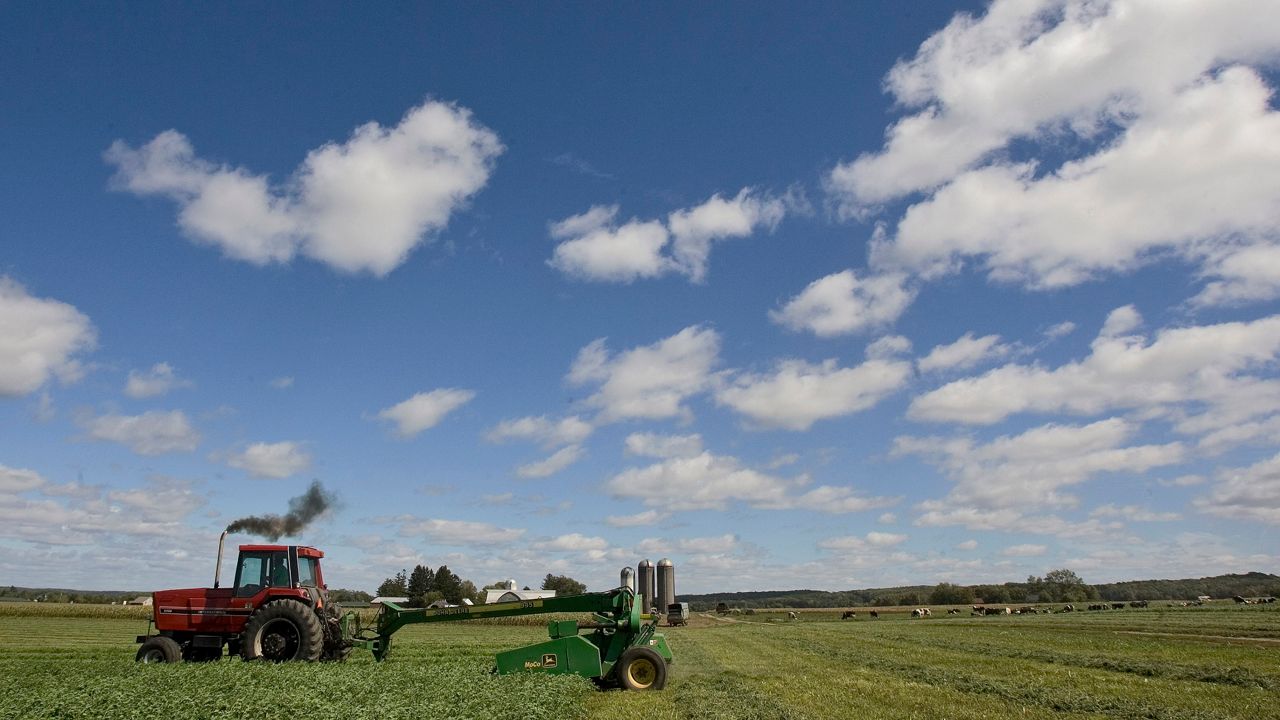In the roughly four months since Deanne Criswell was confirmed as administrator of the Federal Emergency Management Agency (FEMA), the agency has confronted a number of challenges – extreme weather events, deadly heat waves, catastrophic wildfires, and the COVID-19 pandemic, which continues to tear through the United States.
Now, as the U.S. braces for an above-average Atlantic hurricane season – which could have an impact on the Southeastern U.S., a region which boasts some of the lowest COVID-19 vaccination rates nationwide – the catastrophes threaten to converge, forcing FEMA to confront a potential confluence of disasters.
The agency, Criswell said, has played "more of a year round role as of the last few years," and cited a recent dire global warming report released by the United Nations' Intergovernmental Panel on Climate Change (IPCC), which the U.N. called a "code red for humanity."
Criswell cited climate change as the driver behind the recent uptick in natural disasters and extreme weather events, which she acknowledged has forced FEMA employees to work harder – and longer – than ever before.
"As we saw with the U.N. report that came out, climate change is here," she said. "And I think the amount of disasters that we're going to see are only going to continue to increase.”
Earlier this year, the National Oceanic and Atmospheric Administration predicted an above-normal Atlantic hurricane season. In August, the NOAA said that the 2021 Atlantic hurricane season shows "no signs of slowing."
The NOAA’s Climate Prediction Center forecast 15-21 named storms, including including 7-10 hurricanes – and of that number, 3-5 could become major hurricanes.
Criswell told Spectrum News on Thursday that the U.S. is "entering the statistical peak of hurricane season right now."
"A lot of what we do, as we get up to this point, is stay in really close communication with our state partners – in those states that are going to be potentially impacted by a hurricane, understanding what their preparedness levels are and helping to make sure that they are connected with the National Hurricane Center as well so they have the modeling for when a storm is approaching," she added.
“We're beginning to preposition resources in case we need to respond that there's an impact," she added.
Some of the states most at risk of being impacted by a hurricane are the ones with disproportionately low vaccination rates – presenting another challenge for the agency.
Last week, Florida reported more new COVID-19 cases than all 30 states with the lowest case rates combined, White House officials said. That same week, Florida and Texas made up 40% of new COVID-19 hospitalizations nationwide.
Also last week, President Biden issued an urgent plea to Americans to get vaccinated ahead of hurricane season.
"We can't prevent hurricanes from making landfall, but we can prevent people from getting seriously sick and dying from COVID-19," Biden said before a briefing from Administrator Criswell, Homeland Security and COVID-19 response teams.
"If you wind up having to stay in a shelter, you don't want to add COVID-19 to the list of dangers," he said, adding: "The bottom line is this: The more we do to prepare, the better off we are when disaster strikes."
Criswell told Spectrum News that "vaccines are an important step in everybody's preparedness plan this year," before urging all Americans to make a preparedness plan "as we've seen eight storms already."
"But right now, if you haven't been vaccinated now is an important time to make sure that you're going out and getting a vaccine," she added, noting that it's a "promising sign" that they have seen "vaccination rates increase across the coast states."
"We're also going to be able to provide vaccines in some of our federally run operations afterwards," she said, noting that FEMA was able to offer COVID-19 vaccinations in their federal Disaster Recovery Centers (DRC) in Detroit and Louisiana after recent flooding.
"This year, if we do have to open up, if a state has to open up a shelter, we're also going to be able to offer vaccines at their shelters," she said. "I think it's important that we try to bring the vaccines to people and make it easier for them to get them."
When asked how FEMA will adapt to states with different levels of vaccination rates or masking restrictions, Criswell said that when the agency opens up a DRC or Joint Field Office (JFO), "those are federally run facilities" that follow federal and Centers for Disease Control and Prevention (CDC) guidelines for mask mandates.
"But at the same time, we know that some of our operations have to be in the public," she said. "So we're encouraging all of our staff to make sure that they also get vaccinated and if they ever feel unsafe, they have the ability to pull back to make sure that they don't put themselves in harm's way or put the public in harm's way."
COVID-19 has forced FEMA to put some procedures in place to protect Americans, with Criswell noting that "last year ... we didn't have anybody vaccinated going into hurricane season," but this year, things are different.
“This year, we do have a percentage of the population that is vaccinated.” Still, she said the agency will continue to implement some of the safeguards they put in place in 2020, including non-congregate sheltering.
“If families need to evacuate ... if they're going to be threatened and the state borders and evacuation, we are going to authorize reimbursement for non-cogregate sheltering, which means that they can stay in hotels or dorm rooms or other types of non-congregate settings,” she said.
"But we also understand that in some of the large urban areas, they may still have to do congregate setting," she said. "And so we've worked with the Red Cross to make sure that we have appropriate social distancing resources available, such as plexiglass, extra masks, sanitizer, and helping the states understand that they have both options available to them and making sure that they use the one that's going to work best for them."
“Our role throughout COVID-19 has been to support the limited resources that state and local jurisdictions have had, no different than any other natural disaster," she said. "When the resource needs exceed their capabilities, they put in a request for assistance."
Criswell pledged that FEMA will "continue to support those needs as we fight this delta variant that we're seeing right now."
Criswell told Spectrum News Thursday that severe weather impacts and the COVID-19 pandemic have forced FEMA to re-evaluate its disaster response efforts, including the reallocation of employees, funds and disaster response teams.
"The majority of our disaster response staff has always been through our reserves program," she said, noting that the agency is about 22,000 strong between full-time and reserve staff. "Because our disasters have been fairly cyclical, and because we have, kind of, a peak season, it's the disaster reservist workforce that has been the critical point in making sure that we have enough staffing to support these events."
"We have experienced a lot," Criswell said. "We're going into our second hurricane season amidst a pandemic."
"Making sure that we are taking care of our staff is my number one priority when I came in," she continued, noting that last year was difficult with the pandemic and severe weather events, and this year is "no different right now."
"We've given them the opportunity, we've made sure that they've taken the time to rest, and they're reset, and our team is ready to go for the season right now," Criswell added.
Criswell, who previously worked at FEMA during the Obama administration, acknowledged that in terms of morale, "it has been a long couple of years going back to 2017, where we had three back-to-back, going into COVID-19 last year," but said that "the women and men of FEMA are some of the best public servants that we have."
"We are concerned about making sure that they have the resources and the tools that they need to do their jobs effectively," she said. "But they're committed, they're an amazing group of people, and I'm so proud to be part of this organization and support them.
Watch Spectrum News' full interview with FEMA Administrator Deanne Criswell above.









